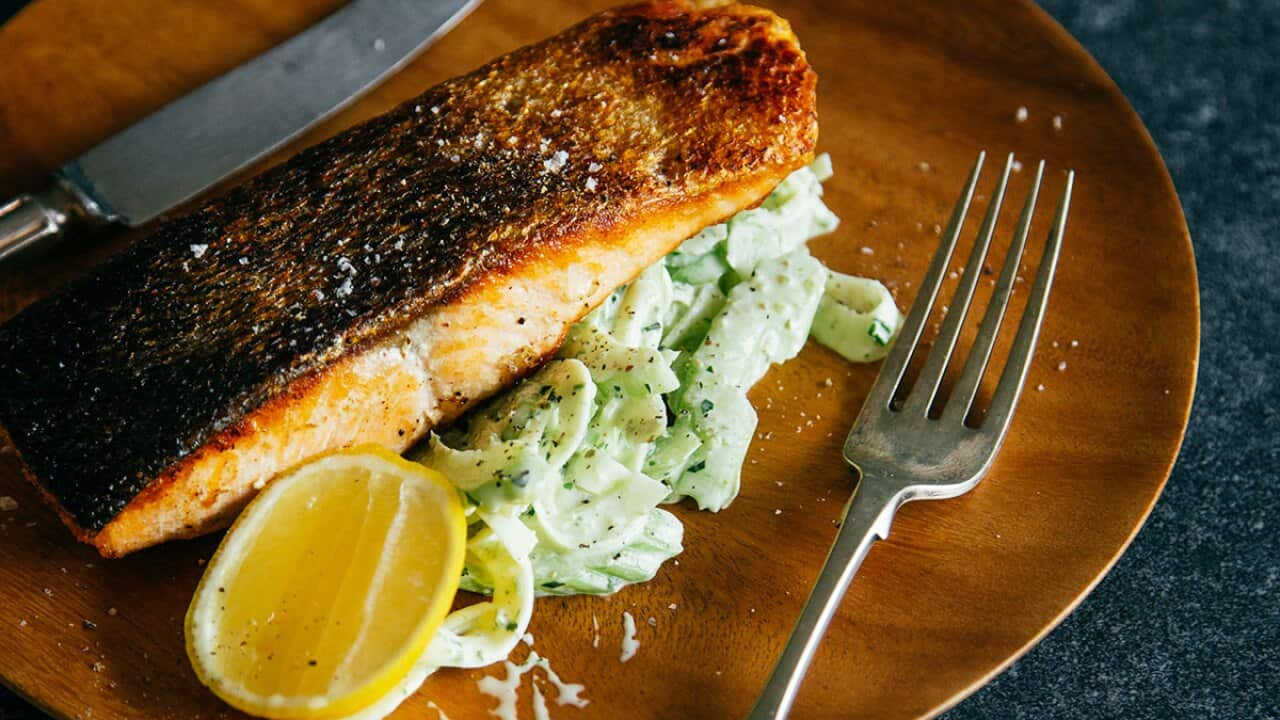Although it may seem like an impossible feat to eat healthily and maintain a nutritious diet throughout an indulgent Christmas break, the task at hand might be rather simple.
According to dietitian, cook and author, Themis Chryssidis, all you need to do replace traditional Christmas winter foods with more culturally appropriate, seasonal summer dishes.
“We are starting to think about Christmas food differently in Australia and be less impacted by the seasonal images we see coming out of Hollywood,” says Chryssidis, an Accredited Practising Dietitian, spokesperson for the and managing director of .
“All the foods we typically eat around Christmas – turkey with cranberry sauce and Christmas puddings – are heavy, winter foods that are not part of our normal cuisine or summer diet. The only reason why these foods are part of our diet at Christmas is because that’s what they eat in the northern hemisphere around this time of year in winter.”
If you cook with ingredients that are local, you’ll also have a healthier Christmas. The foods will be more satisfying and you may not stack on the weight either.
Chryssidis explains that the mismatch between the Australian climate and the traditional Anglo or American foods we eat at Christmas time could contribute to weight gain throughout the merry season, as we more instead of light, cooling meals.
“We should be looking to swap these winter foods for ingredients that suit our climate and cook with produce that’s in season during an Australian summer. That means eating more salads, fruits and vegetables around Christmas.”
In season produce includes various types of stone fruits, cucumbers and tomatoes, and green herbs like mint, thyme and coriander.
“Greek, Italian and Asian style summer dishes that we will enjoy eating on a hot day lend themselves to these ingredients,” says Chryssidis, who is of Greek heritage.
“If you cook with ingredients that are local, you’ll also have a healthier Christmas. The foods will be more satisfying and you may not stack on the weight either.”
Here are Chryssidis’s top food swaps to help you eat healthier this season.
1. Swap roast turkey for lean pork or chicken.
Chryssidis advises carnivore Australians to forget about roasting a turkey and instead, grill or BBQ an alternate white meat, popular throughout Mediterranean countries during summer.
“When you think of Mediterranean cuisine, we always think that lamb is the preferred meat," he says. "But it’s actually white meat – seafood, pork or chicken. So if want a non-seafood animal-based protein to eat, pork is a great white meat to cook with in summer.
“It’s affordable and super lean, and it has got just as much nutritional quality as red meat.”
2. Swap cranberry sauce and gravy for fresh marinades with summer fruits and vegetables.
It goes without saying that if you don’t have a roast turkey, then there’s no need to stress about making cranberry sauce and gravy.
Opt for a fresh marinade for your protein of choice, using summer fruits and vegetables, and fresh herbs.

Salmon is packed with omega-3 oils that have been proven to be good for your brain and cardiovascular system. (Getty Images) Source: Getty Images
3. Swap baked ham for seafood.
Fresh, locally sourced seafood is a much healthier protein choice than a salted ham. Salmon, oysters, trout, tuna and barramundi are packed with omega-3 oils that have been proven to be good for your
“I’ll be personally cooking a whole side of salmon this Christmas,” says Chryssidis.
“It’s hassle-free and nutritious. But the big benefit is that you can cook it in many styles.
“Try an Asian style by adding ginger, coriander and chilli to your salmon and letting it bake. Or, you can go down a Middle Eastern path and coat it in sumac-spice and extra virgin olive oil. In doing this, you’re adding a lot of flavour to the salmon so there’s no need to add salt or fat.”
4. Swap roast potatoes for fruit, vegetable and legume-based salads.
“When we roast potatoes, we often cook with extra fat and salt. It’s not really what we need to eat at this time of year in Australia.”
Chryssidis recommends swapping roast potatoes for salads made with tomatoes, mangoes, lentils, kidney beans and chickpeas.
“Lentils, fruits and vegetables are all part of the Mediterranean diet. They are healthy, satisfying, and high in fibre and protein.
“You can also try making a healthy Middle Eastern-inspired salad with pearl barley and dried fruits and nuts, or a tabouleh with parsley and tomatoes.”
5. Swap puddings and creamy cakes for Italian pastries or fresh, baked fruits.
Portion control is key when it comes to desert. So Chryssidis suggests Italian serving guests small Italian-style pastries for desert.
“Or you can try Greek deserts which use a lot of fruit like figs, watermelon and peaches. Keep the fruit fresh and grill them. Serve it with custard or a thyme and honey syrup.”








